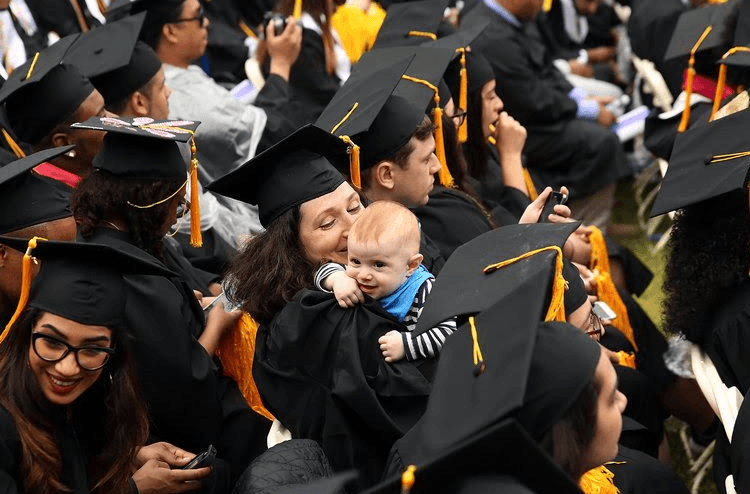Students: Be considerate of students with kids
4 min read
Parent Co. | Parent.com
By SARAH GOODNOUGH
Staff Writer
“[A to do list reads] wake up at 6 a.m., get Jolene’s homework in her bag, get her to school by seven, be at school by 8 a.m.” This is a day according to a detailed planner coded with five different colors. One for the gym, one for school, one for work, one for Jolene and one for University of Mary Washington senior, Rachel Hicks.
Hicks is a 28-year-old student majoring in studio art at UMW, and she is one young woman representing a unique part of the undergraduate student demographic; the student parent.
Being a parent and a student is a struggle not many would immediately understand or even think about. Most of the time, students without children don’t even consider which of their classmates have to maintain the responsibilities that come with being a parent. When someone brings their child to class, other students react in a mixture of surprise and shock as if they never would have guessed their classmate was a parent too.
“My top priority, in school or out of school…has to be her [Jolene] and I think it’s a big thing for someone who isn’t a parent.. they can make school their top priority when I can’t,” said Hicks. “It’s never really affected me as far as my academic work, but it’s something that’s kind of always in the back of my head.”
In a society of iPhones and social media, it has become a millennial stereotype that the only thing college students care about is themselves. However, considering how many students are, in fact, parents we should be including them in the discourse of college life.
This year, the Institute for Women’s Policy Research reported that nationally student parents make up 26 percent of the undergraduate student body. Yet, student parents go unrecognized by other students.
Hicks is one of many here at UMW proving that yes, student parents do exist, and it is time to be considerate of them. After all, there is a lot we can learn from the dedication, hard work and determination they demonstrate every day.
Some of the things Hicks deals with may resonate with students without children, like the age-old struggle of registering for all the right classes. However for her, the struggle is a little different. Hicks transferred from Longwood University in 2009. She attended UMW for a semester before she gave birth to her daughter, Jolene, who is now seven. It was hard for Hicks to get into the classes she needed for her degree because, as a transfer student, she had to wait for other students to register first.
Between taking care of her daughter, working a full-time job and having a limited pool of courses to choose from, Hicks has found it difficult to get into some of the classes she needs to graduate. She has found that communication, persistence and detailed organization really pay off when it comes to getting into the classes she needs.
While other students probably understand the frustration Hicks experiences when registering for classes, the other issues she encounters are specific to parents. Despite being viewed as a “Super Mom” figure by some of her peers, Hicks gets plenty of unsolicited advice and clichéd assumptions thrown at her. One reason might be the failure to understand how someone’s priorities change after they have children.
Despite her busy schedule and juggling work and school while also caring for Jolene, Hicks handles it with elegance and shows how big of a role student parents play in our community. As a student herself, Hicks can inspire her daughter to one day pursue her own goals.
“Don’t use your children as shields,” Hicks said. “My daughter is really into art because I’m into art, and one day she’s going to come to me and be like, ‘Hey I want to be lawyer or an artist or a dancer’ and I think it’s really unfair to tell your children, ‘Well, I wanted that too, but then I had you.’”
Hicks says that by going to school, she is leading by example.
For those of us who do not have children, learn from the example students like Hicks set for us. Perseverance and determination make all the difference in reaching your goals, no matter if it is in getting your degree or having children of your own. Let’s try proving the millennial stereotype wrong by being intentional in considerate towards student parents at UMW.


